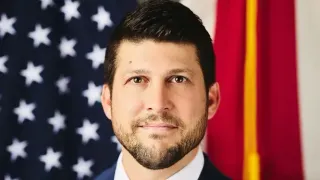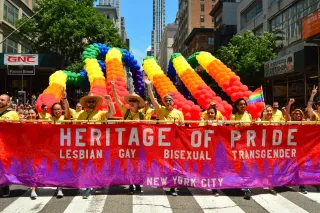October 24, 2024
Beyoncé, Whose 'Freedom' is Harris' Campaign Anthem, is Expected at Democrat's Texas Rally on Friday
Zeke Miller, Colleen Long and Meg Kinnard READ TIME: 3 MIN.
Beyoncé is expected to appear Friday in her hometown of Houston at a rally for Vice President Kamala Harris, according to three people familiar with the matter.
Harris' presidential campaign has taken on Beyonce's 2016 track "Freedom" as its anthem, and the singer's planned appearance brings a high-level of star power to what has become a key theme of the Democratic nominee's bid: freedom.
Harris will head to the reliably Republican state just 10 days before Election Day in an effort to refocus her campaign against former President Donald Trump on reproductive care, which Democrats see as a make-or-break issue this year.
The three people were not authorized to publicly discuss the matter and spoke on condition of anonymity. The Harris campaign did not immediately comment.
Beyoncé's appearance was expected to draw even more attention to the event – and to Harris' closing message.
Harris' Houston trip is set to feature women who have been affected by Texas' restrictive abortion laws, which took effect after the Supreme Court overturned Roe v. Wade in 2022. She has campaigned in other states with restrictive abortion laws, including Georgia, among the seven most closely contested states.
Harris has centered her campaign around the idea that Trump is a threat to American freedoms, from reproductive and LGBTQ rights to the freedom to be safe from gun violence.
Beyonce gave Harris permission early in her campaign to use "Freedom," a soulful track from her 2016 landmark album "Lemonade," in her debut ad. Harris has used its thumping chorus as a walk-out song at rallies ever since.
Beyoncé's alignment with Harris isn't the first time that the Grammy winner has aligned with a Democratic politician. Barack Obama and his wife, Michelle, danced as Beyoncé performed at a presidential inaugural ball in 2009.
In 2013, she sang the national anthem at Obama's second inauguration. Three years later, she and her husband Jay-Z performed at a pre-election concert for Democrat Hillary Clinton in Cleveland.
"Look how far we've come from having no voice to being on the brink of history – again," Beyoncé said at the time. "But we have to vote."
A January poll by Ipsos for the anti-polarization nonprofit With Honor found that 64% of Democrats had a favorable view of Beyonce compared with just 32% of Republicans. Overall, Americans were more likely to have a favorable opinion than an unfavorable one, 48% to 33%.
Speculation over whether the superstar would appear at this summer's Democratic National Convention in Chicago reached a fever pitch on the gathering's final night, with online rumors swirling after celebrity news site TMZ posted a story that said: "Beyoncé is in Chicago, and getting ready to pop out for Kamala Harris on the final night of the Democratic convention." The site attributed it to "multiple sources in the know," none of them named.
About an hour after Harris ended her speech, TMZ updated its story to say, "To quote the great Beyoncé: We gotta lay our cards down, down, down ... we got this one wrong." In the end, Harris took the stage to star's song, but that was its only appearance.
Last year, Harris and her husband, Doug Emhoff, attended Beyoncé's Renaissance World Tour in Maryland after getting tickets from Beyonce herself. "Thanks for a fun date night, @Beyonce," Harris wrote on Instagram.
___
Long and Kinnard reported from Washington. Associated Press writer Linley Sanders in Washington contributed to this report. Kinnard can be reached at http://x.com/MegKinnardAP






